
Kings Row is a 1942 film starring Ann Sheridan, Robert Cummings, Ronald Reagan and Betty Field that tells a story of young people growing up in a small American town at the turn of the twentieth century. The picture was directed by Sam Wood. The film was adapted by Casey Robinson from a best-selling 1940 novel of the same name by Henry Bellamann. The musical score was composed by Erich Wolfgang Korngold, and the cinematographer was James Wong Howe. The supporting cast features Charles Coburn, Claude Rains, Judith Anderson and Maria Ouspenskaya.

Rose Joan Blondell was an American actress who performed in film and television for 50 years.

Constance Cummings CBE was an American-British actress with a career spanning over 50 years.

Berserk! is a 1967 British horror-thriller film directed by Jim O'Connolly and starring Joan Crawford, Ty Hardin, Diana Dors and Judy Geeson. The screenplay was written by Herman Cohen and Aben Kandel.

Joan Marsh was an American child actress in silent films between 1915 and 1921. Later, during the sound era, she resumed her acting career and performed in a variety of films during the 1930s and 1940s.

Marian Marsh was a Trinidad-born American film actress and later an environmentalist.
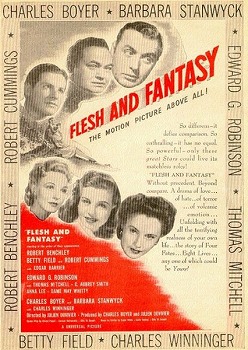
Flesh and Fantasy is a 1943 American anthology film directed by Julien Duvivier and starring Edward G. Robinson, Charles Boyer, Robert Cummings, and Barbara Stanwyck. The making of this film was inspired by the success of Duvivier's previous anthology film, the 1942 Tales of Manhattan. Flesh and Fantasy tells three stories, unrelated but with a supernatural theme, by Ellis St. Joseph, Oscar Wilde, and László Vadnay. Tying together the three segments is a conversation about the occult between two clubmen, one played by humorist Robert Benchley.
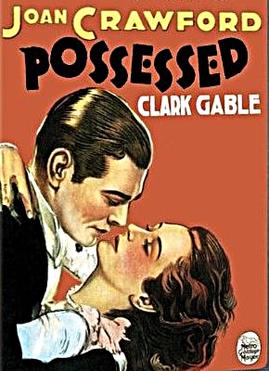
Possessed is a 1931 American pre-Code drama film directed by Clarence Brown, starring Joan Crawford and Clark Gable and released by Metro-Goldwyn-Mayer. The film is the story of Marian Martin, a factory worker who rises to the top as the mistress of a wealthy attorney. The screenplay by Lenore J. Coffee was adapted from the 1920 Broadway play The Mirage by Edgar Selwyn. Possessed was the third of eight film collaborations between Crawford and Gable.

I Live My Life is a 1935 American comedy-drama film starring Joan Crawford, Brian Aherne and Frank Morgan. It is based on the story "Claustrophobia" by A. Carter Goodloe.

Betty Freeman was an American philanthropist and photographer.
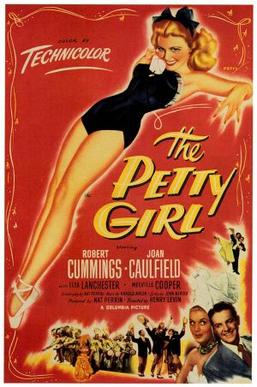
The Petty Girl (1950), known in the UK as Girl of the Year, is a musical romantic comedy Technicolor film starring Robert Cummings and Joan Caulfield. Cummings portrays painter George Petty who falls for Victoria Braymore (Caulfield), the youngest professor at Braymore College who eventually becomes "The Petty Girl".
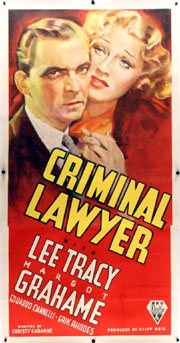
Criminal Lawyer is a 1937 American drama film directed by Christy Cabanne from a screenplay by G. V. Atwater and Thomas Lennon, based on a story by Louis Stevens. The film stars Lee Tracy, Margot Grahame and Eduardo Ciannelli. RKO produced the film and premiered it on January 26, 1937, in New York City, with a national release a few days later on January 29. It was the second time Stevens' story had been used for a film, the first being 1932's State's Attorney, starring John Barrymore and Helen Twelvetrees, directed by George Archainbaud, and also produced and released by RKO.
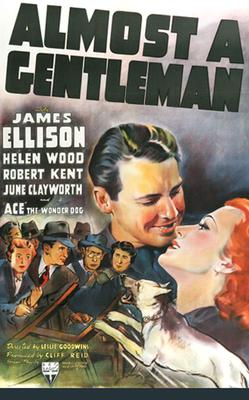
Almost a Gentleman is a 1939 American drama film directed by Leslie Goodwins from a screenplay by David Silverstein and Jo Pagano, based on the story by Harold Shumate. The film stars James Ellison, Helen Wood and Robert Kent. It was released by RKO Radio Pictures on March 31, 1939.

Kenneth Howell was an American actor. He is best remembered for roles in films such as Pardon My Pups (1934), The Wrong Way Out (1938), Pride of the Bowery (1940) and Ball of Fire (1941), in which he played a college boy. He also played Jack Jones in the 17 low-budget Jones Family films, beginning with Every Saturday Night (1936) and ending with On Their Own (1940).

Big Time or Bust is a 1933 American comedy-drama directed by Sam Newfield, which stars Regis Toomey, Gloria Shea, and Walter Byron.

Acquitted is a 1929 American melodrama directed by Frank R. Strayer, from a screenplay by Keene Thompson. The film stars Lloyd Hughes, Margaret Livingston, and Sam Hardy, and was released by Columbia Pictures on November 15, 1929.

Dance Girl Dance is a 1933 American pre-Code musical film directed by Frank Strayer from an original screenplay by Robert Ellis. The picture stars Alan Dinehart, Evalyn Knapp, and Edward Nugent, and premiered on September 1, 1933.

Burnt Wings is a 1920 American drama film directed by Christy Cabanne and starring Josephine Hill, Frank Mayo, and Rudolph Christians. It was released on March 29, 1920.
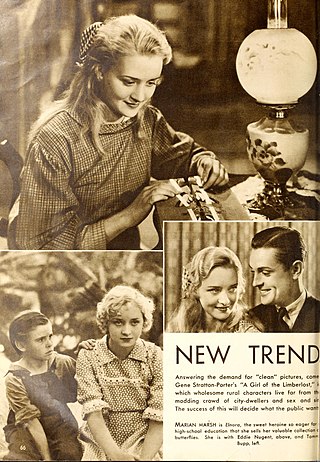
A Girl of the Limberlost is a 1934 American drama film, directed by Christy Cabanne. It stars Louise Dresser, Ralph Morgan and Marian Marsh, and was released on October 15, 1934. This is the second film adaption of Gene Stratton-Porter's 1909 novel of the same name. The first film adaptation had been released in 1924, and a third was released in 1945.
Champagne for Breakfast is a 1935 American comedy-drama film, directed by Melville Brown. It stars Mary Carlisle, Hardie Albright, and Joan Marsh, and was released on June 18, 1935.



















